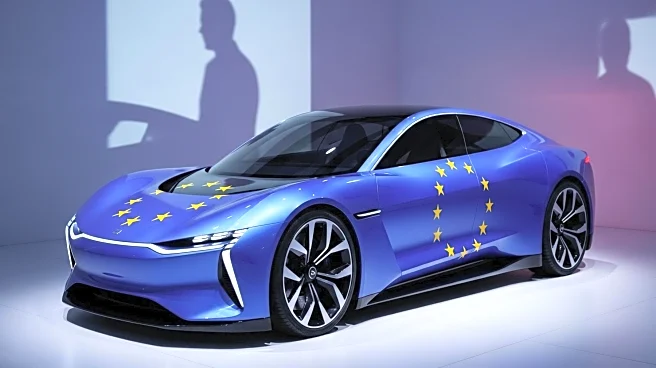What is the story about?
What's Happening?
The European Union is under pressure to modify its 2035 car CO2 regulations, which are a key component of the European Green Deal. The automotive industry, led by Germany's VDA, is advocating for changes that would allow for more flexibility in emissions standards, including allowances for plug-in hybrids and incentives for small electric vehicles. These proposed changes could significantly impact the EU's ability to meet its climate goals, as they may lead to increased sales of combustion engine vehicles and reduced investment certainty for companies in the mobility and electricity sectors.
Why It's Important?
The potential weakening of the EU's car CO2 regulations could have far-reaching implications for the global automotive industry and climate policy. If the regulations are diluted, it could slow the transition to electric vehicles and hinder efforts to reduce carbon emissions. This situation highlights the tension between environmental goals and industry interests, with significant consequences for the EU's climate targets and the future of sustainable transportation.
Beyond the Headlines
The debate over the EU's car CO2 regulations underscores the complexity of balancing environmental objectives with economic interests. The proposed flexibilities, such as supercredits for small EVs and allowances for carbon-neutral fuels, could create loopholes that undermine the effectiveness of the regulations. This situation raises ethical questions about the role of corporate lobbying in shaping public policy and the long-term impact on climate change mitigation efforts.
















